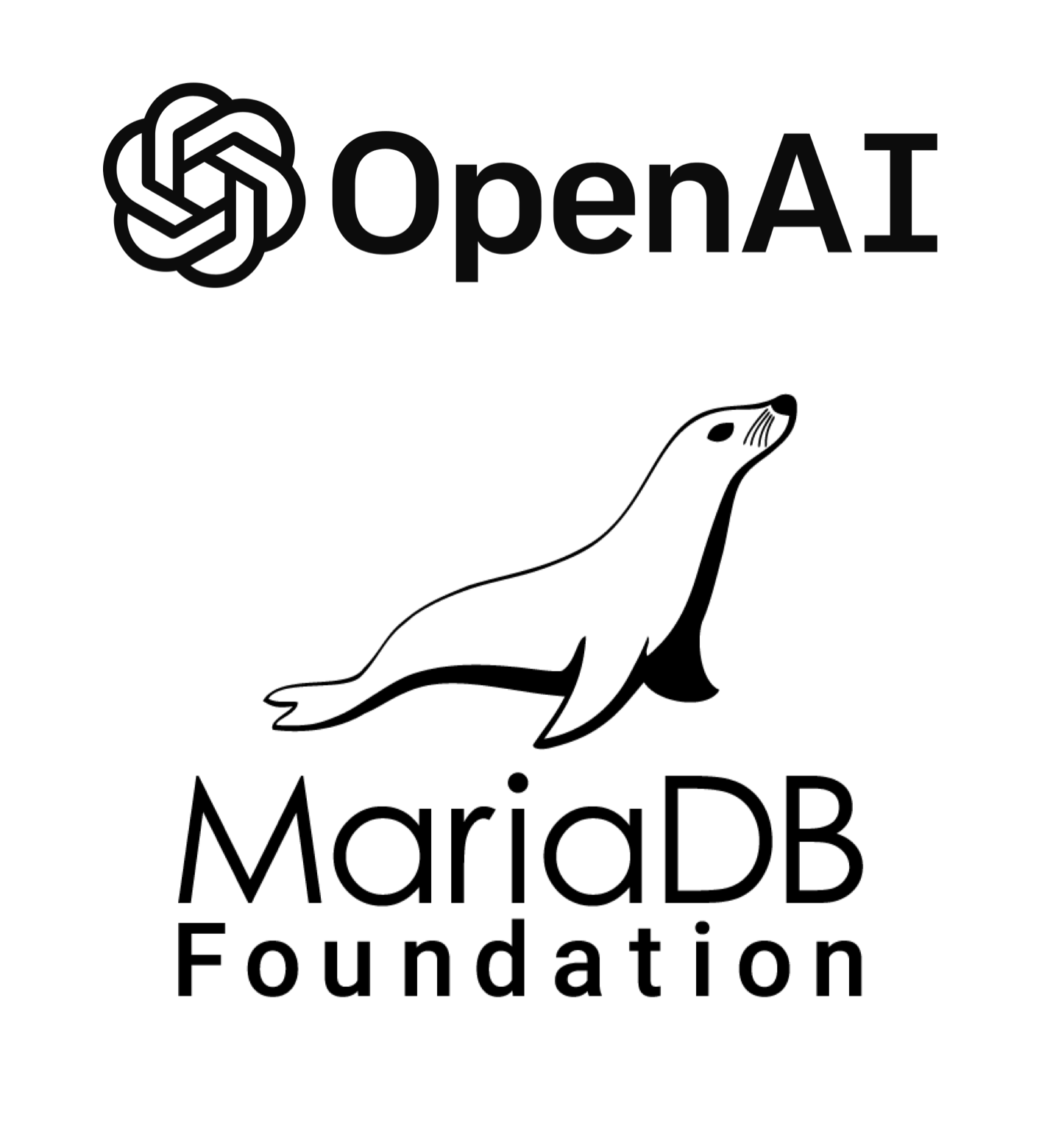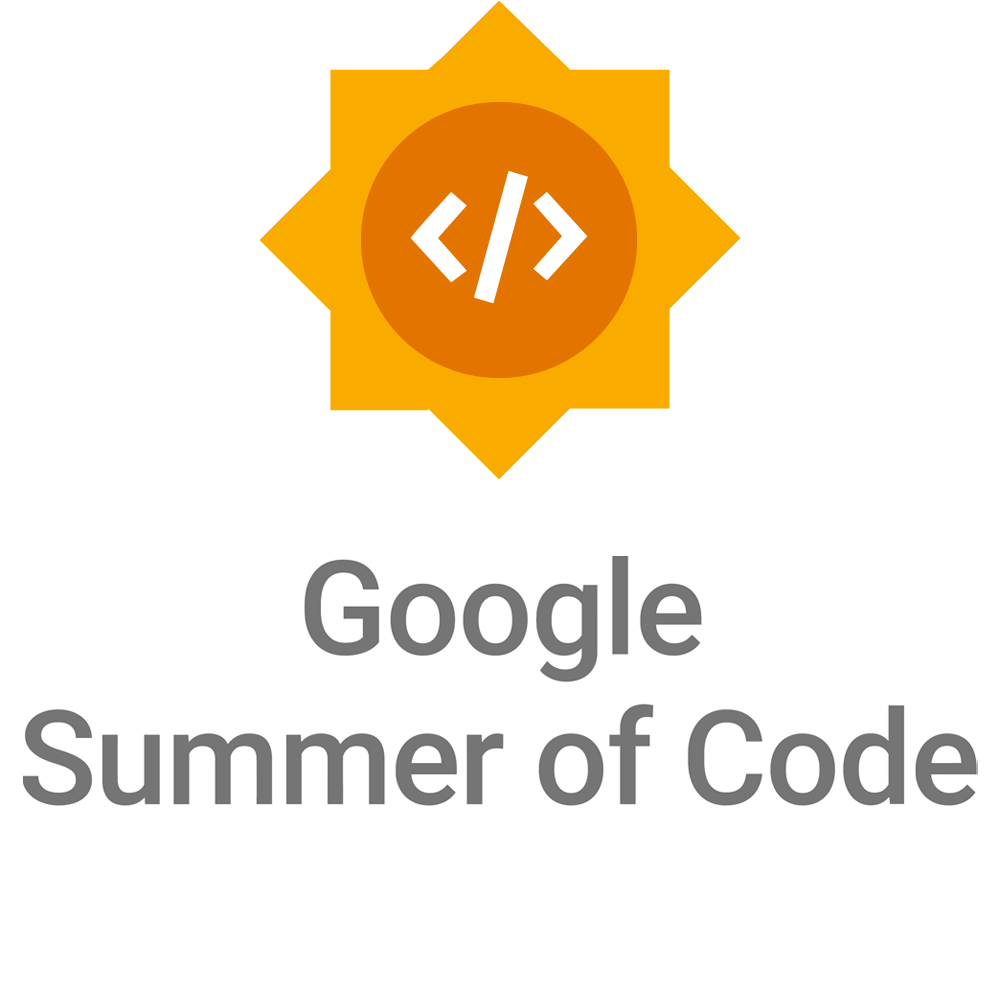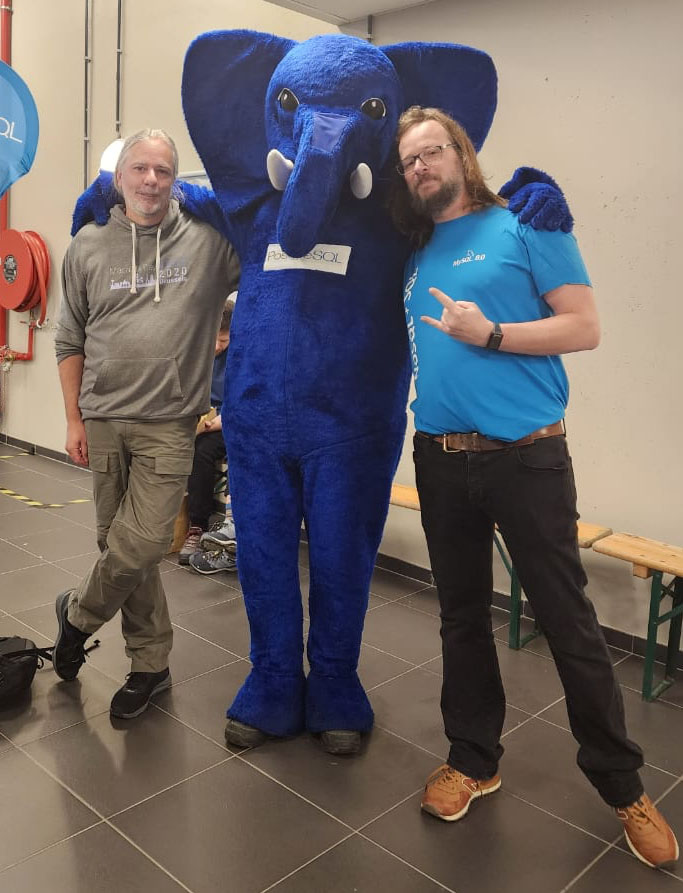When everybody and their grandmother are talking about ChatGPT, you know something is happening – something with significance outside the usual IT bubble. As the first in a series of blog entries, let me reflect upon what AI means for users of MariaDB Server – or, at least, what implications we at the MariaDB Foundation can see at this point in time.
The AI revolution is inevitable …
Pundits say that lawyers or programmers won’t be replaced by AI – but they will be replaced by lawyers or programmers that use AI. I would agree.
…
We are pleased to announce the availability of the MariaDB 11.1 preview release, MariaDB 11.1.0.
Candidate features for MariaDB 11.1
Preview releases are designed to get features into the hands of users more quickly, and should not be used for production. Features in a preview release may not all make the Generally Available (GA) release – only those that pass testing will be merged into MariaDB Server 11.1.1.
Features under consideration for 11.1 include:
Index usage with YEAR and DATE
With MDEV-8320, some queries using the DATE or the YEAR function will be much faster, as the optimizer is now able to make use of an index in certain cases.
…
Continue reading “MariaDB 11.1.0 preview release now available”
Due to a catalogue of issues our previous quarterly update for developer metrics was not published. This time, however, we have made quite a few changes. In this post, we will summarise 2022 and what has happened in the first couple of months of 2023. All the data for this blog post can be found in CSV format in the release section of the MariaDB Metrics repository, along with everything you need to generate the metrics yourself.
Changes to metrics gathering
For the main commit metrics, we use a tool called “GitDM” or Git Data Miner which was developed for the git kernel trees to group commits by people and organisations.
…
Continue reading “MariaDB Contribution Statistics, March 2023”
The Google Summer of Code is a fantastic program that pairs new contributors up with mentors and pays them to work on open source projects.
MariaDB has been part of Google Summer of Code for 10 years and we are happy to announce that we are officially part of the program this year, too!
Traditionally, GSoC has only been open to university students, but now it is available to anyone! I’m a big fan of this, because talented people who do not have the opportunity to go to university can get involved. It also benefits those who are working towards a change into a career in software development.
…
The MariaDB Foundation is pleased to announce the availability of MariaDB Server 11.0.1, the first RC release of the MariaDB Server 11.0 series, a Short Term Support release (with support lasting 1 year).
MariaDB Server 11 is a new major series. The release brings lots of query optimizer changes which we believe will be beneficial to our users. Nonetheless we advise testing before deploying in production as some query plans may change. You can read more about the changes from the original author.
See the release notes and changelogs for details.
Release Notes Changelog What is MariaDB 11.0?
…
Continue reading “MariaDB 11.0.1 RC (Short Term Support) now available”
The MariaDB Foundation is pleased to announce the availability of MariaDB Server 10.11.2, the first GA release of the MariaDB 10.11 series, a Long Term Support release.
See the release notes and changelogs for details.
Release Notes Changelog What is MariaDB 10.11?
MariaDB APT and YUM Repository Configuration Generator
Contributors to MariaDB 10.11.2
Aleksey Midenkov (MariaDB Corporation)
Alexander Barkov (MariaDB Corporation)
Alexander Freiherr von Buddenbrock
Alexander Kuleshov
Andrei Elkin (MariaDB Corporation)
Andrew Hutchings (MariaDB Foundation)
Anel Husakovic (MariaDB Foundation)
anson1014 (Amazon)
Angelique Sklavounos (MariaDB Corporation)
Brad Smith
Brandon Nesterenko (MariaDB Corporation)
Christian Gonzalez (Amazon)
Daniel Bartholomew (MariaDB Corporation)
Daniel Black (MariaDB Foundation)
Daniele Sciascia (Codership)
Denis Protivensky
Dmitry Shulga (MariaDB Corporation)
Dominik Hassler
Eric Herman
Haidong Ji (Amazon)
Heiko Becker
Ian Gilfillan (MariaDB Foundation)
Igor Babaev (MariaDB Corporation)
Jan Lindström (MariaDB Corporation)
Julius Goryavsky (MariaDB Corporation)
Lena Startseva (MariaDB Corporation)
lilinjie
lrf141
Marko Mäkelä (MariaDB Corporation)
Michael Roosz
Mikhail Chalov (Amazon)
Michael Widenius (MariaDB Corporation and MariaDB Foundation)
musvaage
Nayuta Yanagisawa (MariaDB Corporation)
Nikita Malyavin (MariaDB Corporation)
Oleg Smirnov (MariaDB Corporation)
Oleksandr Byelkin (MariaDB Corporation)
Otto Kekäläinen (Amazon)
Robin Newhouse (Amazon)
Rucha Deodhar (MariaDB Corporation)
Sachin Setia
Sergei Golubchik (MariaDB Corporation)
Sergei Petrunia (MariaDB Corporation)
Seppo Jaakola (Codership)
Teemu Ollakka (Codership)
Thirunarayanan Balathandayuthapani
Tuukka Pasanen (MariaDB Foundation)
Vicențiu Ciorbaru (MariaDB Foundation)
Vladislav Vaintroub (MariaDB Corporation)
Vlad Lesin (MariaDB Corporation)
Weijun Huang
Yuchen Pei (MariaDB Corporation)
51 Contributors
Thanks, and enjoy MariaDB! …
Finally, a face to face FOSDEM! The encounters invigorated day-to-day work for all of MariaDB Foundation, even those of us not present in Brussels.
Withdrawal symptoms
With three years since last time, it felt like it was about time to see the familiar FOSDEM faces live again. Finally, last weekend gave us a chance to do what one had come to take for granted – meet in packed devrooms, hear the latest, chat in corridors, exchange thoughts and make plans at Brussels cafés and restaurants.
Back with MySQL
The MariaDB, MySQL and Friends room was back together in one room, having been separated virtually.
…
The MariaDB Foundation is pleased to announce the availability of MariaDB 10.10.3, MariaDB 10.9.5, MariaDB 10.8.7 and MariaDB 10.7.8, the latest Generally Available releases in their respective short-term series (maintained for one year from their first GA release dates), as well as MariaDB 10.6.12, MariaDB 10.5.19, MariaDB 10.4.28 and MariaDB 10.3.38, the latest stable releases in their respective long-term series (maintained for five years).
See the release notes and changelogs for details.
Release Notes Changelog What is MariaDB 10.10?
…



